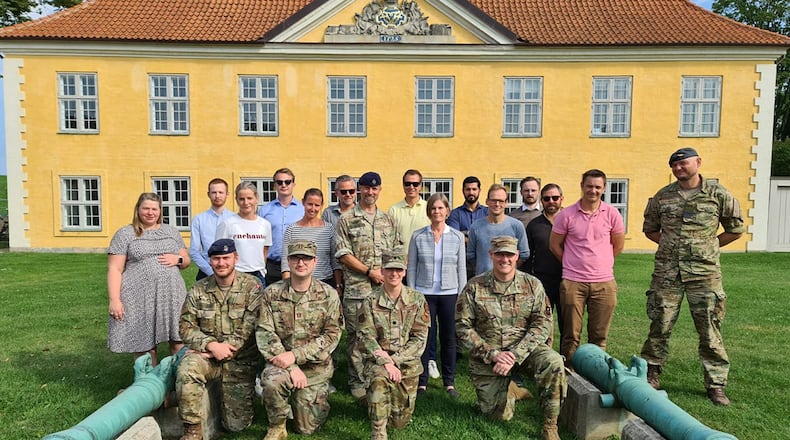The ICE course is offered to international professionals transitioning from tactical to operational-level cyberspace responsibilities focused on design, development and systems acquisition. The professional development course is designed to take a holistic approach to cyberspace systems — identifying which pieces are critical, determining vulnerabilities and impacts if taken down by a cyberattack, and employing offensive and defensive cyber actions to defend the system.
“Our goal in this course is to teach how cyber fits into the bigger picture with other domains — to understand the overall process,” said Master Sgt. Nicholas Schopperth, manager of cyber professional continuing education courses at AFIT’s School of Strategic Force Studies.
During simulation exercises, students work through an anatomy of attack.
“It’s basically a ‘capture the flag’ exercise,” Schopperth said. “It starts with information gathering, what we would call passive reconnaissance, looking at websites or other open sources of information, followed by active reconnaissance, or enumeration, where we actually go out and look for open doorways or vulnerabilities in their networks.
“That intel is then used to help the students with defensive actions where they run exploits against different systems, run network-traffic analysis to identify malicious actions and install firewalls.”
The exercises culminates in a capstone project, developing a recommended course of action based on the scenarios.
The course provides international partners an opportunity to receive cyberspace education they wouldn’t normally have access to due to security restrictions. Adjusting the curriculum provides School of Strategic Force Studies instructors the ability to deliver similar content to students, allowing for security cooperation and enhancement of strategic partnerships.
“It gives us different talking points that we can bring back to the U.S. on topics such as Europe’s General Data Protection Regulation law,” Schopperth said.
Teaching the course to international students provides a new perspective to the faculty.
“Through dialogue with our coalition partners, both students and faculty gain new perspectives when thinking about problems in the cyberspace domain,” said Lt. Col. Kaitlin Kenny, director of the school’s cyber professional continuing education.
The School of Strategic Force Studies is one of four schools that comprise the Air Force Institute of Technology. It’s responsible for delivering professional continuing education in nuclear deterrence policy and theory; nuclear command, control and communication; and cyberspace operations.
For more information, visit www.afit.edu/EX.
About the Author
